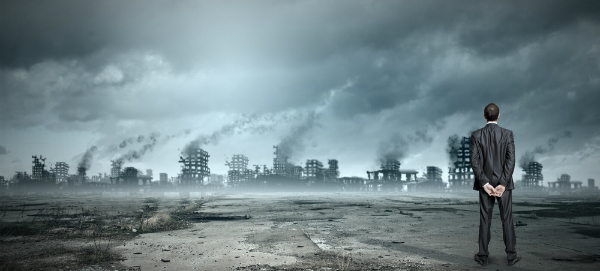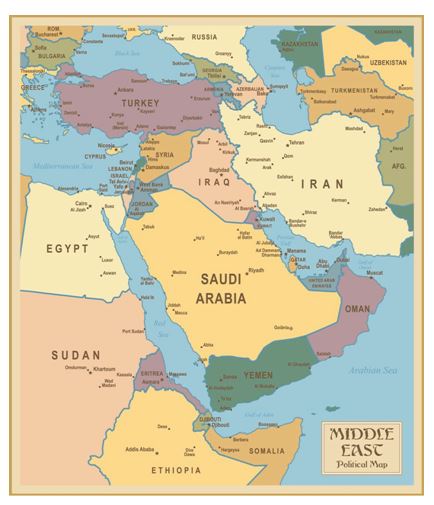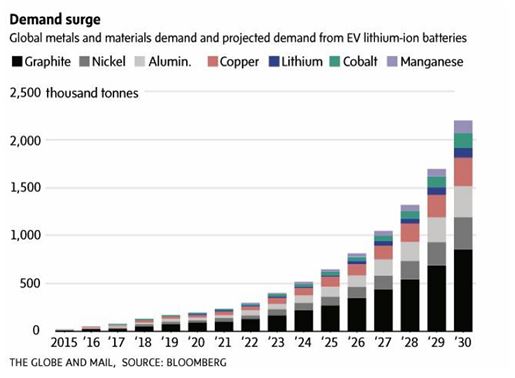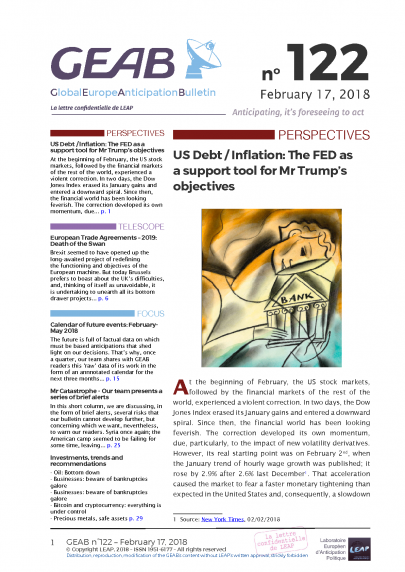GEAB 122

In this short column, we are discussing, in the form of brief alerts, several risks that our bulletin cannot develop further, but concerning which we want, nevertheless, to warn our readers.
Syria once again
The American camp seemed to be failing for some time, leaving the way open to the Russian camp to calm the situation. But now it is reorganised, surrounded by countries whose interests it was already representing. All the great proxy-players of the Syrian war are now revealed: on one side, the United States, Israel, Saudi Arabia, Kurdistan; and on the other: Russia, Iran, Turkey, Palestine. Under the cover of a common war against the ISIS, these enemies are now gathering on the same ground, especially around the oil wells (ISIS, legitimate Syrian forces, Americans, Russians…). Israel will not abandon the camp either; it will never accept a regime favourable to Iran completing the Shiite Iran-Mediterranean Sea corridor on their northern border. Not to mention that an open war will allow Israel to fulfil its dream of getting rid of the Palestinian populations in the West Bank – wars are perfect opportunities to trigger population displacements as everyone knows.
Turkey (although no more than Iraq or Syria for that matter) will not accept the establishment of a US-controlled Kurdish oil region. The positions seem irreconcilable. The ground conditions are now set for direct fighting between Russians and Americans, between Israelis and Iranians … Turkey and the United States (still officially NATO allies) are on the verge of rupture. The risk of conflagration is at its highest[1], hopefully creating the desire for the much needed change, to lay the foundations of the “New Middle East”[2], one whose potential is more and more visible. But we are in doubt today of the possibility that these foundations will be set on something other than on a field of ruins, a process already well under way: the Middle East is at war, and this is nothing new, only the lack of media coverage of this appalling situation is keeping it hidden from us.
The Red Sea as well…
Less known tensions are also mounting around the Red Sea as part of what we call “the War of the Straits”; one of which Yemen is the most visible victim. This War of the Straits is linked to the seemingly unconditional requirement to control the passage to the Red Sea by Saudi Arabia.

Figure 1 – Map of the Middle East
In Yemen this control is, to some extent, challenged by the presence of 45% pro-Iranian Shiites… hence this war. But on the other side of the southern strait of the Red Sea, Bab el-Mandib, there is Djibouti where in August 2017 China inaugurated its first regional military base[3]. But today, Sino-Djiboutian relations are being inflamed, bringing China to focus its gaze on Egypt, Yemen, Oman etc. This Saudi-Iranian “squabble” in Yemen and the Europeans’ impetuous actions in Libya also have consequences for Chinese interests in the region, justifying their need to acquire the military means of preserving these interests. Also around the Red Sea, Sudan and its ports has already been the subject of conflicts between the United States and China in particular, conflicts that resulted in a division between North and South Sudan. A division that did not solve much in the end[4]. Chinese and Japanese interests also clash in Sudan. The northern part of the Red Sea crossing is under full Saudi control, as Al-Sissi is a pro-Saudi Egyptian President.
The Emiratis are also actors in the region, with distinct interests from those of the Saudis. They hold bases in Eritrea and Somalia, but also in Yemen following their alliance of convenience against the Houthis. Europeans are also present! This notice is not intended to establish the list of national interests flowing around the Suez Canal, the Red Sea and the Straits of Bab el-Mandib. One thing is certain: in a world where the interests of the multipolar world powers are not in tune, geographical hot-spots as strategic as the Red Sea Strait are perfect ignition points for transcontinental conflicts. This particular region has the added characteristic of being located in a geopolitical vacuum: at the intersection of different continents, with no supranational authority able to gather the potential belligerents around the same table. We must be alert, therefore, concerning this region of the world!
South America tilting over
This year’s South American electoral calendar is jam-packed and the tilting towards the right wing is a dominant trend. But there are places of resistance with a Bolivarian spirit, even considerable ones: Venezuela is holding on and could be joined by Mexico soon. Right or left leaning, hard nationalist political regimes are being put into power everywhere. The desperate corruption associated with the oil price crisis has severely affected the American sub-continent, as well as the emergence of a new generation with very different aspirations compared to those of their elders. This creates polarising axes throughout the region. The madness brought on by the economic forces and their belief that only the right-wing harmonisation of South America could allow its integration, is degenerating. The left-wing governments surrender on corruption accusations and are being replaced by even more corrupt right-wing governments. This leads to the emergence of right-wing populist governments, but also some left-wing ones, with a nationalist tendency. If Lula’s elimination from the next election paves the way for the election of the ultra-nationalist Bolsonaro (whose course we have followed closely for almost a year) at the head of Brazil, border conflicts with Venezuela will inevitably ensue and these are likely to degenerate. Land claims are numerous across the subcontinent. The Americans may wait for precisely this to give them the excuse to come back there and bring order to the region…
But do they really have the means? If they do not have them, South America could start looking like Europe in the 1930s … The world-after keeps some surprises and Latin America could be part of them… The same Latin America which also has the distinguishing feature of being one of the most difficult to understand regions in the world : the absence of a multilingual common media makes the evolution of this subcontinent quite unpredictable.
The BRICS disappear in the quicksands
The recent resignation of South African President Jacob Zuma[5] has a lot to do with a modern social, political, and institutional crisis, but also with his choice to join the BRICS[6]. His replacement, Cyril Ramaphosa, could show much less enthusiasm for South Africa’s participation in BRICS bodies and agendas. However, we do not anticipate an exit from South Africa[7]. To block the BRICS’ dynamics, it is even more effective to keep countries with little motivation inside. Between Brazil, India and now South Africa, the BRICS countries are indeed losing their way… which is not good news, at all, by the way. Instead, we are probably witnessing an attempt to divide the world around three or four poles and their own backyards: China abandons South America and leaves it to the United States; the United States abandons South-East Asia and leaves it to China; Africa gets abandoned in Europe’s arms. This configuration, based on territorial logics of protected backyards, is a perfect breeding ground for conflicts which will only last a (very) short time.
The Environment: a crisis of redefinition

Figure 2 – Global metals and materials demand for Electric Vehicle Batteries, 2015-2030. Source: The Globe and Mail.
In the West, the environmental agendas are preparing, according to our team, for serious setbacks. Here are some of the reasons leading us to this conclusion:
The discrediting of some ecological movements due to their perceived NIMBY (Not in My Back-Yard) attitude: after fighting for waste recycling plants, for example, they fight for these factories not to be installed in their own neighbourhood. The US withdrawal from the environmental agenda: even if this is good news in the medium term, because the United States was rather a blocking player than voluntary participant, this withdrawal puts on hold some aspects of the implementation of the calendar. Questions about some fundamental principles such as “is global warming the right fight?”, and “are renewable energies the right solutions[8]?” Also noteworthy is the questioning of the all-electric future in terms of motor vehicles; the enormous electricity needs linked to this strategy defy the desired protection effect for the environment. 4) The liquidity crisis related to the stopping of QE, and the investment difficulties in a world refusing to levy taxes, will cause problems for investment in this energy and environmental transition. The reindustrialisation and relocation of productive activity in the West are not likely to go hand in hand with the clean-up of our environment. The partial transformation of Europe into China’s breadbasket[9] and the concomitant deployment of intensive agriculture will be anything but organic. Also, the likely decline in oil and gas prices will limit the competitiveness of other energy sources. The tilting of Europe and the Americas over to the extreme right will put environmental protection projects down at the bottom of the pile. Therefore, the East is likely to take control of the environmental agenda for a while, hopefully not for too long (2018-2025).
[1] In one week only, an Israeli F-16, an Iranian drone, a Russian Jet and a Turkish helicopter were shot down. Source: Yahoo, 14/02/2018. And about 200 Russian mercenaries were killed by North American forces. Source: Bloomberg, 13/02/2018
[2] Read our previous articles on this topic, which we fully assume by the way. Source: GEAB
[3] Source: Reuters, 01/08/2017
[4] As China stepped up its aid for South Sudan, the US tightens its sanctions and exacerbates tensions; example on weapons restriction. Source: VOAnews, 05/02/2018
[5] South African President Jacob Zuma’s resignation “effective immediately“. Source: Le Monde, 14/02/2018
[6] Just read this article to convince yourselves that this choice was greeted with gnashing of teeth by some of the country’s forces. Source: News24, 11/02/2018
[7] Host and organiser of the 10th BRICS Summit next July. Source: The South African, 29/01/2018
[8] On this subject, the publication of Guillaume Pitron’s book entitled “The Rare Metal War” focuses on the destructions induced on the environment by the economy of new technologies and renewable energies supposedly to help reduce pollution. The success of this book is anything but a coincidence.
[9] According to this old article “China’s devouring appetite in Eastern Europe”. Source: Sputnik, 07/12/2015, but also some figures appeared in Spain : « Apart from infrastructure and real estate and hospitality, other important sectors include agriculture products and food and beverages, which received around EUR 525 million according to the Rhodium Group. In the European context, agriculture in Spain is a comparatively important target for Chinese investors ». Source: Eurasia Review, 10/02/2018

At the beginning of February, the US stock markets, followed by the financial markets of the rest of the world, experienced a violent correction. In two days, the Dow Jones [...]
Brexit seemed to have opened up the long-awaited project of redefining the functioning and objectives of the European machine. But today Brussels prefers to boast about the UK's difficulties, and, thinking [...]
The future is full of factual data on which must be based anticipations that shed light on our decisions. That's why, once a quarter, our team shares with GEAB readers [...]
- Oil: Bottom down - Businesses: beware of bankruptcies galore - Businesses: beware of bankruptcies galore - Bitcoin and cryptocurrency: everything is under control - Precious metals, safe assets Oil: [...]

Comments